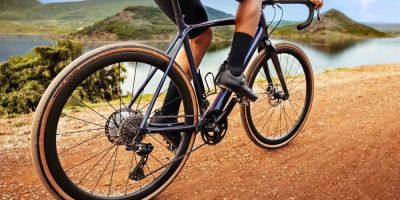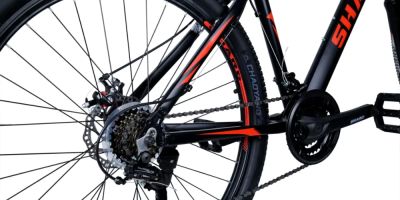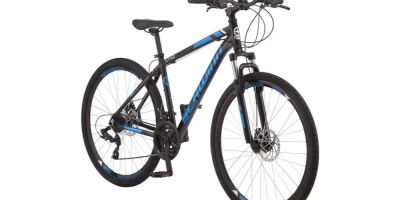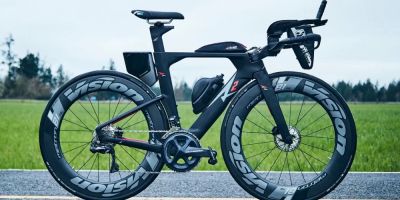Your Ultimate Companion for Urban Streets: My Journey to the Best City Bike
1. Why I Switched to a Bike for City Commuting
Living in a crowded city like New York, commuting by car or even public transport had become a daily struggle. The endless traffic jams, late buses, and packed subways pushed me to explore other options. One day, after missing an important meeting due to a subway delay, I decided to make a bold change — I bought my first commuter bike.
That decision changed everything. I went from being stressed out every morning to actually enjoying my ride to work. I felt healthier, more energized, and most importantly, I gained back control over my daily schedule. But finding the right bike wasn’t easy. It took weeks of research, countless test rides, and lots of trial and error. That’s why I’m sharing this — to help others find the best bike for navigating city streets.
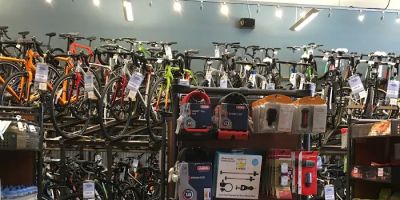
Mike's Bikes of Berkeley
1824 University Ave, Berkeley, CA 94703, USA
2. What to Look for in a Great City Bike
2.1 Frame Type and Geometry
One of the first things I learned was how important the bike's frame is. A lightweight yet durable frame, preferably made of aluminum or chromoly steel, makes a huge difference when you're navigating traffic or lifting the bike up stairs. Look for frames designed specifically for urban commuting — upright geometry, short wheelbase, and internal cable routing help keep things efficient and tidy.

Mike's Bikes of Berkeley
1824 University Ave, Berkeley, CA 94703, USA
2.2 Gearing and Drivetrain
In cities with flat terrain, a single-speed or internally geared hub can be perfect — low maintenance and simple to use. However, if you deal with hills, like I do in San Francisco when visiting family, a 7- to 11-speed drivetrain becomes necessary. I personally love the Shimano Nexus hub for its smooth shifting even while stopped at lights.
2.3 Tires and Wheels
Urban streets are unpredictable. Between potholes, broken glass, and curbs, your tires need to be tough. I use puncture-resistant 700x32c tires — they’re the sweet spot between speed and comfort. Also, double-walled rims provide durability without adding too much weight.
2.4 Brakes Matter More Than You Think
Trust me, once you’ve had to stop suddenly to avoid a cab door flying open, you’ll be grateful for good brakes. Disc brakes — especially hydraulic ones — offer consistent stopping power in all weather. I’ll never go back to rim brakes after my experience during a rainy Brooklyn morning when my brakes gave out mid-turn.
3. My Top Picks: Best Bikes for Navigating City Streets
3.1 Priority Continuum Onyx
My current go-to bike. It’s nearly maintenance-free, features an internally geared hub, and has a belt drive that never needs oil. Perfect for someone who wants a set-it-and-forget-it ride. It’s not the lightest, but the comfort and durability make it worth every penny.
3.2 Trek FX 3 Disc
Great for riders who want a bit more speed. With a lightweight aluminum frame and carbon fork, the FX 3 handles like a dream. It also comes with mounting points for racks and fenders, making it perfect for commuting and errands alike.
3.3 Brompton Folding Bike
Ideal for city dwellers short on space. I used one for years when I lived in a fifth-floor walk-up. Its compact fold means it fits under your desk or in a closet, and you can even bring it into cafes or the subway without hassle. Surprisingly fast and fun to ride, despite its small wheels.
4. Real-Life Tips for City Cycling
4.1 Choose the Right Lock
Once I had my first bike stolen outside a deli, I never underestimated the value of a solid lock again. A U-lock combined with a secondary cable for the wheels is my standard setup. Make sure to lock the frame to something immovable — and always take your lights with you.
4.2 Lighting and Visibility
City streets can be chaotic. A good set of front and rear lights isn’t just for night rides — even during the day, blinking lights make you more visible. I recommend rechargeable LED lights with multiple modes. Reflective tape on your helmet and pedals also goes a long way.
4.3 Get Comfortable With the Rules
Ride like you're driving a car. Signal turns, stop at red lights, and don’t ride on the sidewalk unless it’s legal in your area. I learned early that being predictable helps you stay safe. Also, many cities now offer bike safety classes and group rides — definitely worth joining.
5. How My Life Changed After Becoming a Daily Urban Cyclist
I never imagined that a bike could give me so much. My health improved, I started losing weight, and I even made a few friends through local cycling groups. On days when the sun is out and the city feels alive, nothing beats cruising along the bike lane with music in my earbuds and the wind at my back.
I've helped three coworkers switch to biking, and all of them say the same thing — they wish they’d started sooner. It’s more than just a way to get from A to B; it’s a lifestyle change that brings freedom, peace of mind, and a fresh perspective on the city you live in.
6. Where to Find the Best Bikes and Gear
Whether you’re a beginner or looking to upgrade your ride, finding the right bike shop is crucial. I recommend starting with local stores that offer test rides and expert fitting. You can also visit our site, Healthy Cycling, where we curate the best city bikes, accessories, and tips from seasoned urban riders. We focus on bikes that actually perform well on real city streets — not just what looks good on paper.
There’s a perfect city bike out there for everyone — you just need to find the one that fits your lifestyle, your commute, and your vibe. Happy riding!


